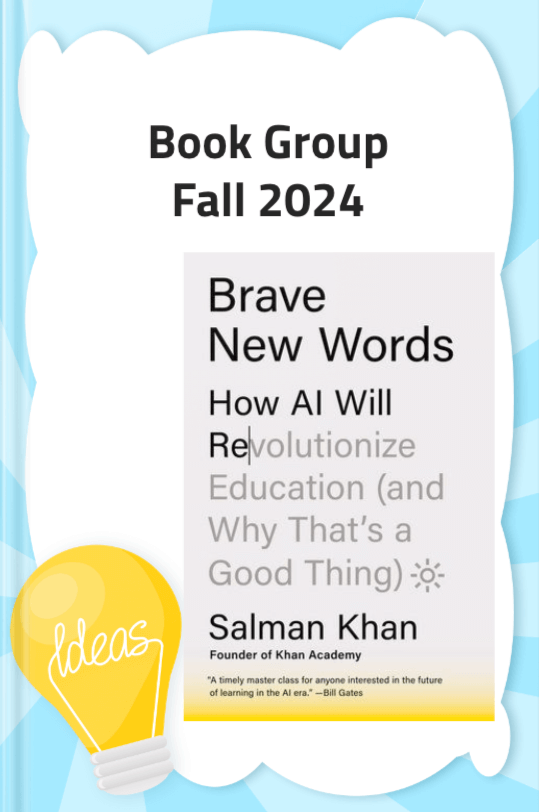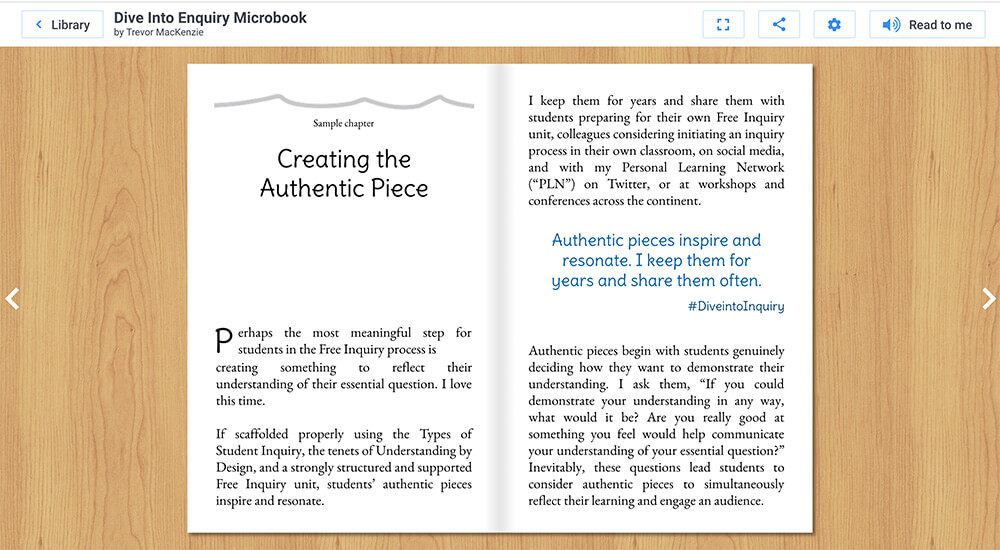
I’m sure this isn’t the first instance even today, and you might want to share your experiences and hear others’ ideas in a safe space together. Picture this: a community of educators like you, all passionate about guiding students in an AI-powered world, exploring new ideas together.
For our professional learning book club, the Learning Technology Center (LTC) featured Salman Khan's groundbreaking work Brave New Words: How AI Will Revolutionize Education (and Why That's a Good Thing). As we navigate the rapidly evolving landscape of educational technology, our book club offers each other a unique opportunity to explore the transformative potential of artificial intelligence in the classrooms and districts we support.
Why Brave New Words?
Salman Khan, founder of Khan Academy and a visionary in educational technology, presents a compelling vision for the future of learning in the AI era. His book offers deep insights into how AI can be a catalyst for creativity and a tool for unleashing student potential. As educators, we must stay at the forefront of these developments to serve the state of Illinois best and prepare them for the future.
Book club structure
Our book club met virtually over five sessions, each focusing on a different chapter and theme from Brave New Words.
Here's what we did:
- Weekly Discussions: We'll dive deep into Khan's ideas, discussing their implications for our teaching practices and students' learning experiences.
-
Practical Applications: Participants explored how to implement Khan's insights in their own educational settings, sharing ideas and best practices to kickstart our discussions and centralize us. We also took the time to honor AND respectfully challenge ideas rather than take them fully at face value.
-
Rotating Hosts: We each took turns leading sections of the book, providing additional perspectives, and answering questions.
-
Further Collaboration: Members worked to apply the concepts learned and discussed, creating AI-enhanced professional development, insight, and educational resources. Many of these ideas were able to go back to our teams for further ideas.
Why we loved Book Creator for our book club
Joining this book club offered numerous advantages for our professional development and building our knowledge together, and Book Creator was crucial for that collaboration:
- One Equitable Space: By collaborating with the same book, all participants easily stayed within the loose structure of the book study and had powerful ways to share their experiences and resources
- Keeping Informed: Gain a comprehensive understanding of AI's role in education from one of the field's leading thinkers.
- Intentional Networking with Colleagues: Connect with fellow educators passionate about leveraging technology to improve learning outcomes.
- Access to Resources: Access a collection of tailored materials and tools to deepen your exploration of AI in education.
Book Creator helped create a collaborative environment where everyone could contribute, learn, and grow together.
Want to start your own AI book club?
- Obtain a copy of Brave New Words
- Gather your group
- Commit to attending weekly virtual meetings and contributing to discussions
- Use our structure created on Book Creator

Get Book Creator for your school!
- Upgraded accounts for all your teachers
- Implementation plan to help with rollout
- PD support
- Analytics & admin dashboard

Brian Krause is a dedicated educational leader with a passion for integrating technology to enhance learning and organizational effectiveness. As an Instructional Technology Coach at the Learning Technology Center (LTC) in Illinois, Brian supports schools in leveraging technology to improve student outcomes, streamline operations, and foster innovative practices.











